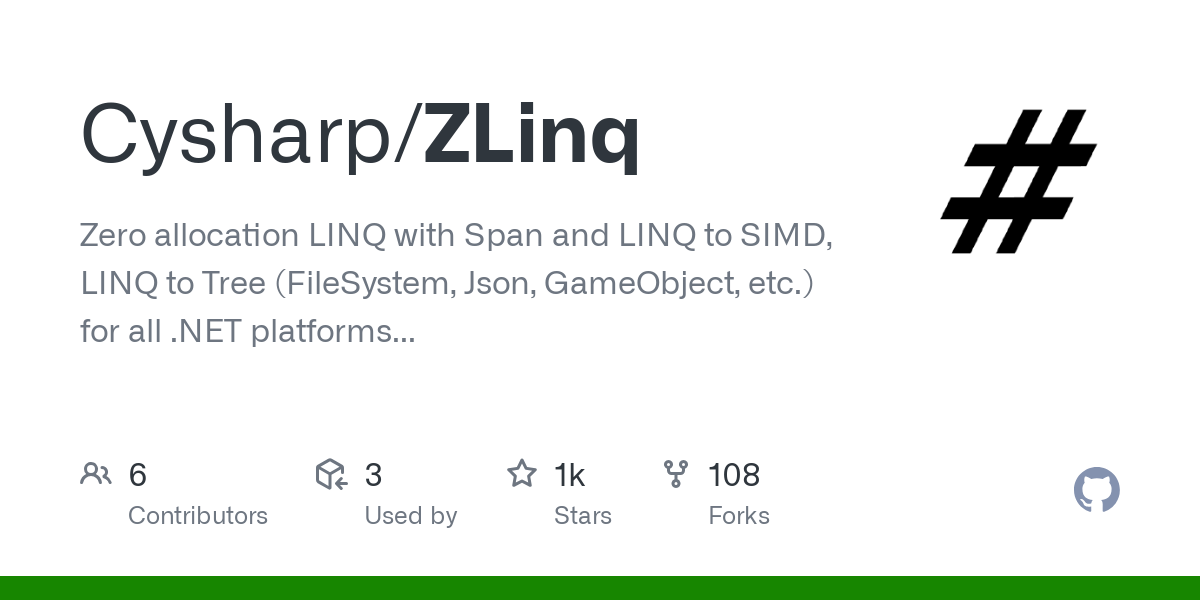I’ve recently discovered this project, which assuming it works as advertised (which I think wasn’t really tested yet, since it seems to be a pretty new repo) sounds like a pretty good library to add into your toolbox.
For those that do not know, LINQ is basically a query language over collections in C#, that allows you (from the top of my head) to do stuff like
someList.Where(x => x.value < 10).OrderBy(x => x.priority).Select(x => x.name)
which would give you a IEnumerable list with names of elements where value is smaller than 10, ordered by priority.
However, using LINQ in performance critical code, such as per-frame Updates, is not really a good idea because it unfortunately does generate a lot of garbage (allocations for GC to collect). Having a version that doesn’t allocate anything sounds awesome, assuming you are a fan of LINQ.
What are your thoughts? For me, it sounds like something really useful. While it’s not really that difficult to avoid LINQ, I’m a fan of the simplicity and descriptive nature of the syntax, and not having to avoid it would be great. It does seem there are quite a few issues starting to pop up, but it’s definitely a project that could be worth it to follow.



It’s/The technical readme desc is certainly interesting.
I’m using linq (to mssql) extensively at work. I also have parsing use cases where we work with spans.
I’ll look more into this lib, keep it in mind, and potentially experiment with it.
If you’re using Entity Framework for the mssql, I doubt that this library would work as a substitute.
Because that linq gets parsed into expression trees and then send to the underlying provider (mssql/mysql etc) to be converted into sql. So if you you some non-standard library those providers won’t be able to convert that linq to sql
Yeah, that was ma understanding/assessment as well. It could be useful for my other use case of reading from linear byte data spans though. I suspect the dependency overhead won’t be worth for what it provides though when I can go over the span myself. We don’t have many query-condition-like aspects to reading it.